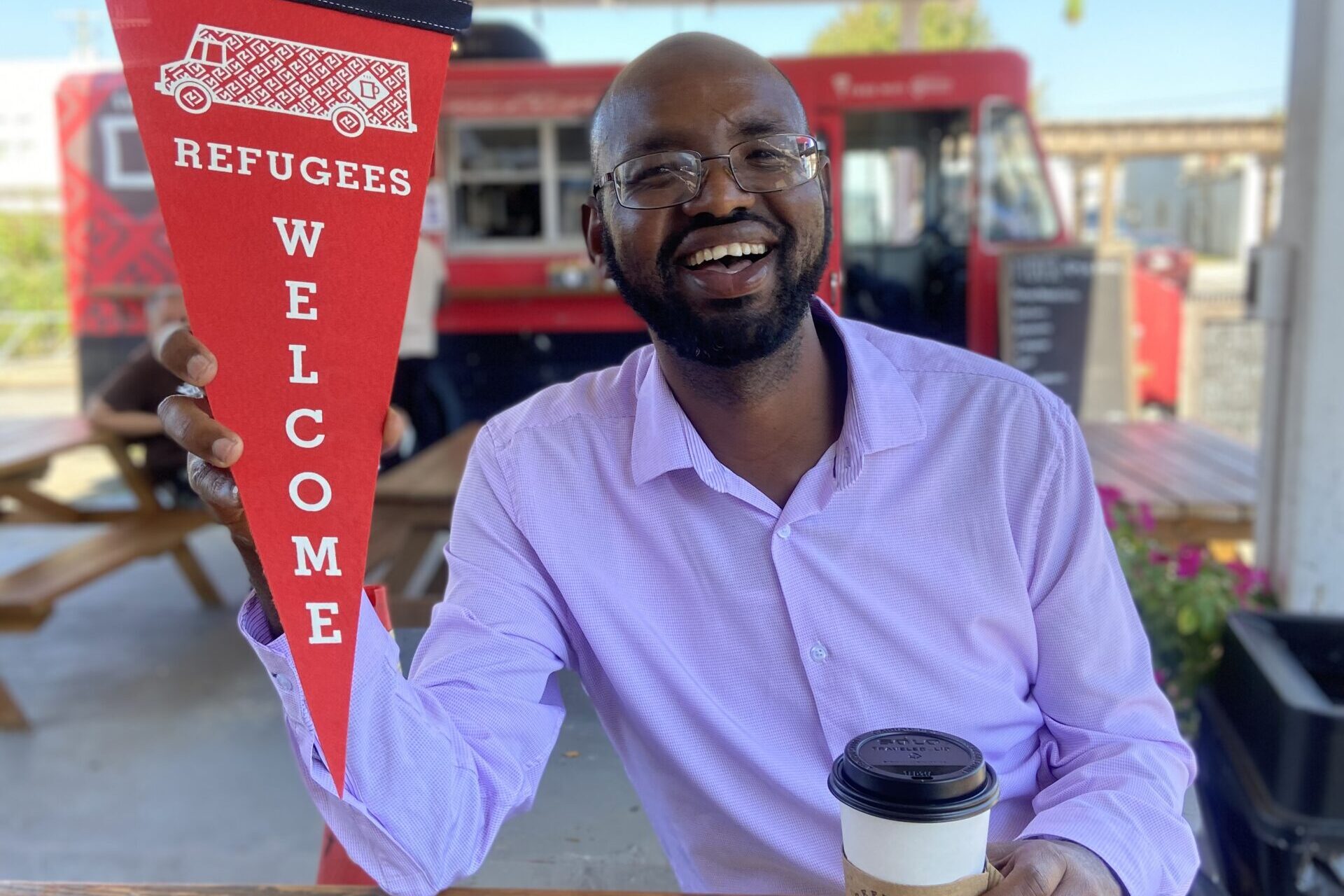From Discernment to Epiphany
From Discernment to Epiphany
By Kelly Dunlap
The community surrounding Atlanta’s First Presbyterian Church has changed drastically since the church was founded nearly 170 years ago. What was then suburbia is now the heart of the metropolitan city. The church building’s Romanesque architecture, its name in the National Register of Historic Places, and its hymn-singing, organ-accompanied choir tell of a church with a rich history and an appreciation for tradition. But many who found a spiritual home at FPC wondered if God was calling them into something new.
The arrival of a new pastor in 2018 presented the opportunity to create a strategic plan and thus kicked off a period of discernment. Lay leaders and pastors felt called to explore ministry possibilities “beyond old models of mission and service.” They began trying to see their community with new eyes.
They asked: “What needs are we missing? What resources do we have that we’re not using?” Among these resources, they considered funding, space, material assets, and the congregants’ gifts and expertise.
With a fresh perspective of God’s work in the community and the congregation, the discernment committee identified a new ministry goal: “to promote individual economic empowerment.” But as FPC’s then-executive pastor Rebekah LeMon recounted, they got “stuck” determining how to pursue this goal. Still, they remained committed to seeing with new eyes and resisted resorting to familiar old solutions.
They found traction again when lay leader Ellen Adair Wyche learned of a social entrepreneurship program run by a Houston congregation. Social entrepreneurship is the process of developing a business that addresses a social problem.
Ellen Adair was energized by this new ministry model and arranged a meeting between the program’s creator and FPC leaders. What was calendared as a thirty-minute lunch stretched into two hours. After more conversation, extensive research, logistical planning, and recruiting of volunteers with passion for and expertise in business development, FPC launched its own social entrepreneurship program called Epiphany.
Epiphany solicits applications from aspiring and early-stage social entrepreneurs with business ideas that will be both financially sustainable and address challenges facing the community. They’re seeking proposals that address “homelessness, housing, refugee resettlement, criminal justice reform, racial equity, poverty, human rights, employment, health care, community development, or education.”
After thoughtful consideration of the proposed business models, Epiphany leaders select finalists who then receive assistance from experienced mentors and coaches, recruited from the congregation itself, in refining their business plans. After this period of collaborative and hands-on development, Epiphany leaders choose a small number of applicants to become Epiphany fellows and receive funding. Funding amounts vary by year and are dependent on the generosity of the congregation and the needs of the venture. The 2022 cohort received grants from a $200,000 funding pool.
Epiphany’s first round of grants helped launch a coffee company that provides job training and a living wage to resettled refugees; a mobile app that provides basic information about housing court to reduce evictions; a candied pecan business that helps fund Meals on Wheels, and more.
One of the program’s most unexpected positive outcomes is how it’s engaged and empowered the congregation. Some church members, who had not yet participated in mission projects but who had professional expertise to coach and mentor these entrepreneurs, stepped up to volunteer. Epiphany, then, not only identifies and affirms the potential within social entrepreneurs but also that of volunteers. According to Ellen Adair, the congregation responded with an “enthusiasm and commitment beyond what we’ve seen” for other church projects. It also sparked some to think more deeply about the connection between their professional lives and vocation.
Leaders named the program Epiphany, in part, as a testimony to how an established church began to see itself and God’s work in the world in new ways. Through faithful discernment—or “being led by the Spirit,” as Ellen Adair describes it—they discovered and stepped into a new way of doing ministry. To FPC lead pastor Tony Sundermeier, this is the epitome of the journey to Epiphany: “Being surprised by God, inviting us to participate in what God is doing in ways we couldn’t have fathomed or imagined.”
Finally, as Ellen Adair points out, the work of Epiphany is actually not a novel venture within the Christian tradition: “Christians have long been in the business of building sustainable social systems to supporting human flourishing.” In fact, Epiphany is a “modern way to recapture an ancient idea.”
This story is part of Lake Institute’s story collection, the Faithful Generosity Story Shelf, which highlights congregations and other religious organizations who have sought to use their assets and resources in creative—and sometimes surprising—ways as an expression of faithful giving.
Each entry in our Story Shelf is short enough to be read and discussed during a committee meeting or other group gathering. Our hope is that these accessible vignettes will spark new questions, conversation, and imagination among clergy and laity about what might be possible with the funds, buildings, land, and other resources in their care. If you know a story that should be included in the Story Shelf, suggest it here.
Subscribe
Insights, a bi-weekly e-newsletter, is a resource for the religious community and fundraisers of faith-based organizations that provides:
- Reflections on important developments in the field of faith and giving
- Recommended books, studies and articles
- Upcoming Lake Institute events

